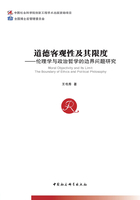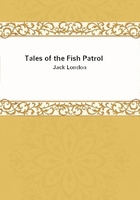Tell the judges, then, who is their improver; for you must know, as you have taken the pains to discover their corrupter, and are citing and accusing me before them. Speak, then, and tell the judges who their improver is.--Observe, Meletus, that you are silent, and have nothing to say. But is not this rather disgraceful, and a very considerable proof of what I was saying, that you have no interest in the matter? Speak up, friend, and tell us who their improver is.
The laws.
But that, my good sir, is not my meaning. I want to know who the person is, who, in the first place, knows the laws.
The judges, Socrates, who are present in court.
What, do you mean to say, Meletus, that they are able to instruct and improve youth?
Certainly they are.
What, all of them, or some only and not others?
All of them.
By the goddess Here, that is good news! There are plenty of improvers, then. And what do you say of the audience,--do they improve them?
Yes, they do.
And the senators?
Yes, the senators improve them.
But perhaps the members of the assembly corrupt them?--or do they too improve them?
They improve them.
Then every Athenian improves and elevates them; all with the exception of myself; and I alone am their corrupter? Is that what you affirm?
That is what I stoutly affirm.
I am very unfortunate if you are right. But suppose I ask you a question:
How about horses? Does one man do them harm and all the world good? Is not the exact opposite the truth? One man is able to do them good, or at least not many;--the trainer of horses, that is to say, does them good, and others who have to do with them rather injure them? Is not that true, Meletus, of horses, or of any other animals? Most assuredly it is; whether you and Anytus say yes or no. Happy indeed would be the condition of youth if they had one corrupter only, and all the rest of the world were their improvers. But you, Meletus, have sufficiently shown that you never had a thought about the young: your carelessness is seen in your not caring about the very things which you bring against me.
And now, Meletus, I will ask you another question--by Zeus I will: Which is better, to live among bad citizens, or among good ones? Answer, friend, I say; the question is one which may be easily answered. Do not the good do their neighbours good, and the bad do them evil?
Certainly.
And is there anyone who would rather be injured than benefited by those who live with him? Answer, my good friend, the law requires you to answer--does any one like to be injured?
Certainly not.
And when you accuse me of corrupting and deteriorating the youth, do you allege that I corrupt them intentionally or unintentionally?
Intentionally, I say.
But you have just admitted that the good do their neighbours good, and the evil do them evil. Now, is that a truth which your superior wisdom has recognized thus early in life, and am I, at my age, in such darkness and ignorance as not to know that if a man with whom I have to live is corrupted by me, I am very likely to be harmed by him; and yet I corrupt him, and intentionally, too--so you say, although neither I nor any other human being is ever likely to be convinced by you. But either I do not corrupt them, or I corrupt them unintentionally; and on either view of the case you lie. If my offence is unintentional, the law has no cognizance of unintentional offences: you ought to have taken me privately, and warned and admonished me; for if I had been better advised, I should have left off doing what I only did unintentionally--no doubt I should; but you would have nothing to say to me and refused to teach me. And now you bring me up in this court, which is a place not of instruction, but of punishment.
It will be very clear to you, Athenians, as I was saying, that Meletus has no care at all, great or small, about the matter. But still I should like to know, Meletus, in what I am affirmed to corrupt the young. I suppose you mean, as I infer from your indictment, that I teach them not to acknowledge the gods which the state acknowledges, but some other new divinities or spiritual agencies in their stead. These are the lessons by which I corrupt the youth, as you say.
Yes, that I say emphatically.
Then, by the gods, Meletus, of whom we are speaking, tell me and the court, in somewhat plainer terms, what you mean! for I do not as yet understand whether you affirm that I teach other men to acknowledge some gods, and therefore that I do believe in gods, and am not an entire atheist--this you do not lay to my charge,--but only you say that they are not the same gods which the city recognizes--the charge is that they are different gods. Or, do you mean that I am an atheist simply, and a teacher of atheism?
I mean the latter--that you are a complete atheist.
What an extraordinary statement! Why do you think so, Meletus? Do you mean that I do not believe in the godhead of the sun or moon, like other men?
I assure you, judges, that he does not: for he says that the sun is stone, and the moon earth.
Friend Meletus, you think that you are accusing Anaxagoras: and you have but a bad opinion of the judges, if you fancy them illiterate to such a degree as not to know that these doctrines are found in the books of Anaxagoras the Clazomenian, which are full of them. And so, forsooth, the youth are said to be taught them by Socrates, when there are not unfrequently exhibitions of them at the theatre (Probably in allusion to Aristophanes who caricatured, and to Euripides who borrowed the notions of Anaxagoras, as well as to other dramatic poets.) (price of admission one drachma at the most); and they might pay their money, and laugh at Socrates if he pretends to father these extraordinary views. And so, Meletus, you really think that I do not believe in any god?
I swear by Zeus that you believe absolutely in none at all.















